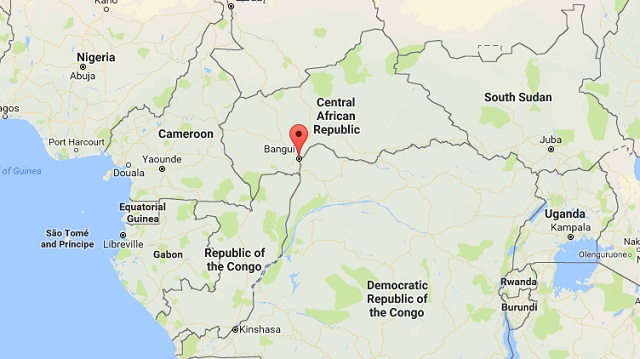
Bangui, Central African Republic | AFP | France will give the Central African Republic, its restive former colony, aid of 24 million euros ($27.4 million) and weapons, Foreign Minister Jean-Yves Le Drian announced on Friday.
“France wishes to continue its historical partnership with the Central African Republic,” the minister told journalists in Bangui after meeting President Faustin-Archange Touadera.
Le Drian signed aid agreements worth 24 million euros in 2018 for the payment of salaries and pension arrears, to develop regions near neighbour Cameroon affected by massive population displacements, and build bridges to open access to parts of the country.
He also announced that France would “soon deliver arms” to Bangui — specifically 1,400 assault rifles for the Central African Armed Forces (FACA) established after independence in 1960.
“We are doing this within the strict, respectful, and transparent framework of the United Nations, in total transparency concerning the origin, the routing, and the delivery” of the arms, said Le Drian.
One of the world’s poorest and most unstable countries despite vast mineral riches, the CAR spiralled into bloodshed after longtime leader Francois Bozize was overthrown in 2013 by a mainly Muslim rebel alliance called the Seleka.
That same year, the UN Security Council imposed an arms embargo on the country. The ban remains in place, except for weapons provided to the security forces with special pre-approval by a sanctions committee.
Last year, this committee gave the green light for Russia to supply weapons to the national forces.
But in June this year, France, Britain, and the United States blocked a request from Bangui for UN approval of Chinese weapons deliveries.
CAR Foreign Minister Charles Armel Doubane said Friday it “was time that France decided to make these assault rifles available to FACA within the strict framework of international commitments.”`
The government controls only a small part of the country, with vast areas under the control of armed groups vying for power and resources.
Thousands of people have died, 700,000 been internally displaced and another 570,000 have fled abroad as a result.
The African Union launched a UN-backed mediation effort in July 2017.
On the eve of Le Drian’s visit, clashes between armed groups in Batangafo in the north forced more than 10,000 people to take refuge in the local hospital, according to Doctors Without Borders.
 The Independent Uganda: You get the Truth we Pay the Price
The Independent Uganda: You get the Truth we Pay the Price



